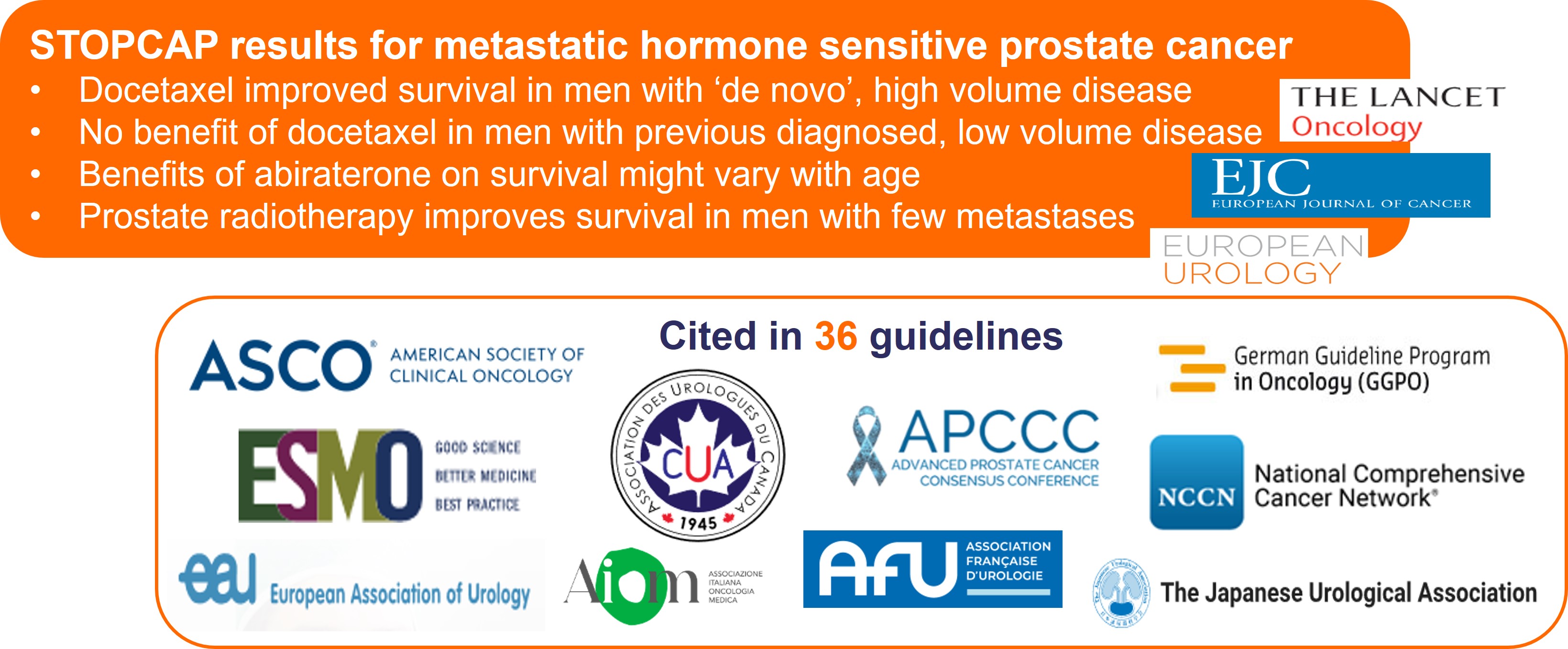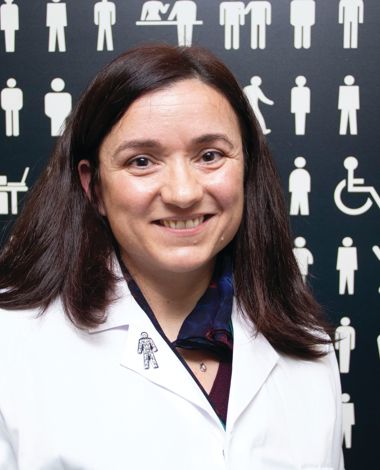Finding the right treatment for each man
Thanks to your support we were able to fund a team based at the MRC Clinical Trials Unit at University College London to quickly identify which treatments work best for which men whose cancer has spread beyond the prostate.
During a clinical trial, researchers collect a lot of data on individual men. Usually, they look at these data as a whole, to see if a new treatment works better than the current standard. For example, trials have shown that adding treatments such as docetaxel, abiraterone and enzalutamide to hormone therapy can help men with advanced prostate cancer live longer. However, it's also important to know if these sorts of treatment work for all of the different types of men included in the trials. This needs a lot of data, and an individual trial may not be big enough.
That's why we funded a team, led by Professor Jayne Tierney, to find a smarter way to use valuable clinical data. Professor Tierney's team collected results and data on individual men from lots of clinical trials around the world. Having more data means they could work out more reliably which men benefited most and which men benefited least from treatments.

Each man with prostate cancer is unique, so we don’t want to rely on a one-size fits all approach to his treatment. I’m so grateful to the men who took part in these clinical trials, allowing us to explore their data further to find a better, more tailored fit for each. This research is impacting the lives of men worldwide.
For example, they worked out if men whose cancer had spread a little responded to treatments in the same way as men whose cancer had spread a lot. This has ensured that the right groups of men can now be prioritised to receive the treatments that are best for them. The research also identified which groups of men didn’t respond to particular treatments. This means they can now be offered other treatments that are more suited to them, and may help them avoid unnecessary – and potentially life changing – side effects. Professor Tierney’s work has provided better information for men with advanced prostate cancer, and enabled medical teams to find the right treatment for each man.

(Aug 2025)

John Swayne, 59, from Melton Mowbray, Leicester, was diagnosed with advanced prostate cancer in May 2019. He was treated with a course of docetaxel chemotherapy before switching to the hormone therapy bicalutamide, which made him feel back to his normal self.
It’s fantastic that Prostate Cancer UK are funding research to improve treatments for men like me. I’ve got a young granddaughter and my daughter got married in 2022. Both of those are things I never thought I’d see when I got diagnosed. I’ve got so much to live for and every man deserves that chance.”
From research idea to access for all


Idea
Using men’s clinical data in a smarter way is a key part of our Research Strategy. We want to make rapid change for men, by finding new answers from existing data. Professor Jayne Tierney and her team carried out an in-depth analysis of results and data from multiple completed trials. This is called a meta-analysis, and helps identify which groups of men will benefit from treatments such as the chemotherapy docetaxel or the anti-androgen abiraterone.

Lab research
To quickly identify which treatments work best, the team cooperated with teams running clinical trials across the world. This is a win-win, as individual large trials may show if a treatment works (or not), and the detailed, robust analysis by our funded researchers can pinpoint precisely which group of men this treatment is best for.

Clinical trials
The team used data from many clinical trials, for example, the STAMPEDE (UK), CHAARTED (USA) and GETUG (Europe) trials which looked at the effects of docetaxel, analysing data from over 2,000 men across the world. The results of the analysis is now being used by clinicians to treat smarter, not harder.

Approved for use
The evidence produced by this type of analysis is very powerful and robust. This is so impactful that analyses from this team have already influenced many UK and international guidelines, for example, which men to treat with radiotherapy.

Access for all
As well as working closely with us to influence the Government's Major Conditions Strategy, the team has worked closely with the clinical community to ensure these recommendations are taken on board by clinicians, not just in the UK but globally.
What's next?
We're supporting the next steps in Professor Tierney's work to evaluate an even greater range of treatments and ensure they reach men as soon as possible.
We also fund a range of research into treating men in a more precise way, including projects looking to use existing and new treatments more accurately.
Help us fund more lifesaving research like this...
Your support helps us fund pioneering research, so we can work towards a future where men's lives aren't limited by prostate cancer.




